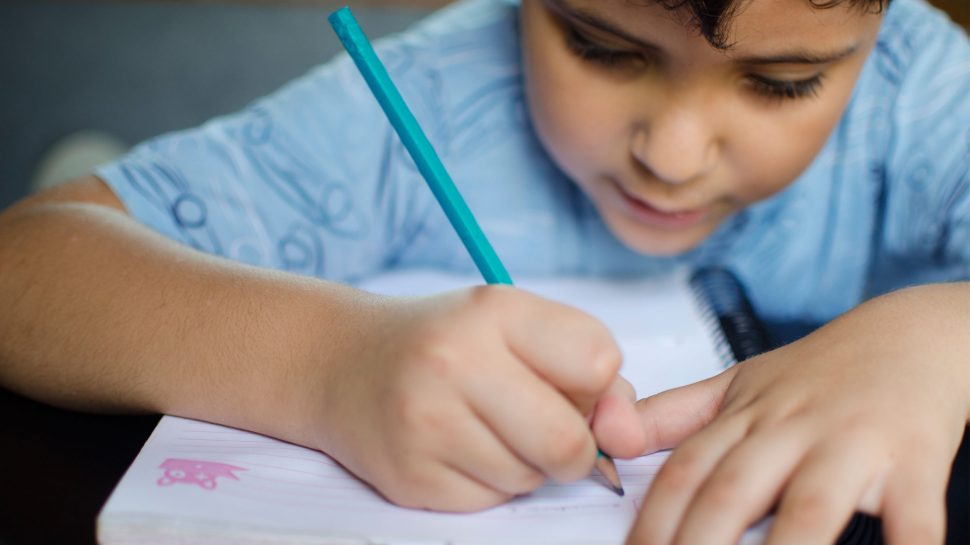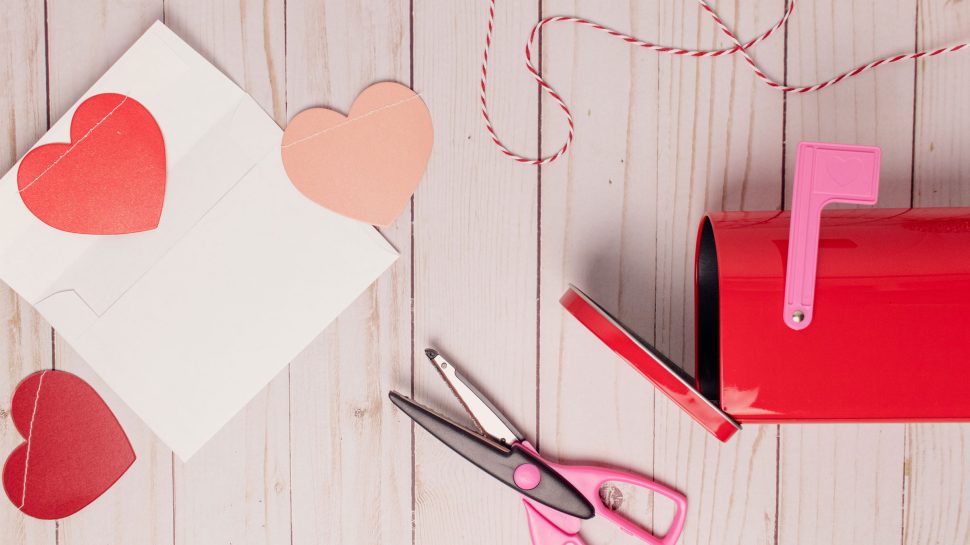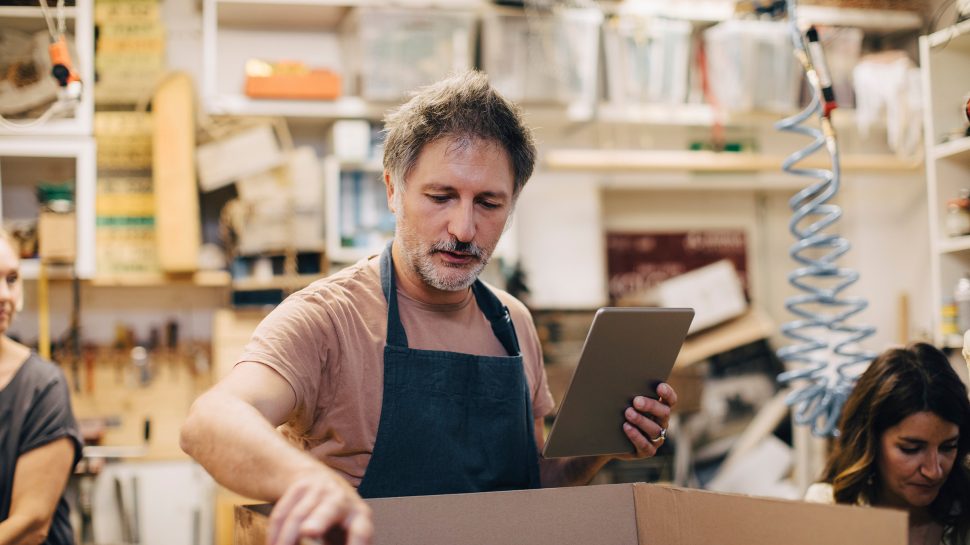Isobelle Carmody: Celebrating the personal touch of a handwritten letter
Australian author, Isobelle Carmody, conveys the joy of letter writing and explains why now is the best time to pick up your pen (and ink).
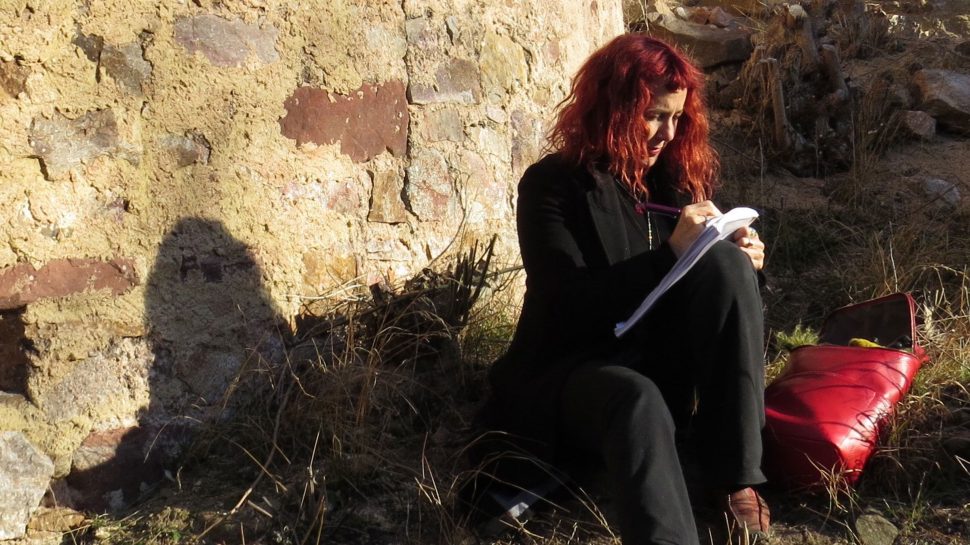
Australian author, Isobelle Carmody, is best known for her Obernewtyn Chronicles, which she began writing longhand at age 14. While she has since acquainted herself with a computer, she has never strayed far from handwriting her thoughts and ideas, whether it’s the first draft of a new novel or a newsy letter to one of her many correspondents.
Isobelle once counted herself among the few who still preferred a pen to a keyboard. That has changed in recent times. Self-isolation has become the catalyst in the revival of letter writing and more people are rediscovering the thrill of finding a letter or postcard in their mailbox.
In fact, the humble handwritten letter is inadvertently documenting this unique time in history for us. It’s a keeper of memories that we can revisit and even share with the next generation.
Isobelle talks about the joys of letter writing, how it’s helping people during this time and how parents can get their children to put pen to paper.
How long have you been a letter writer?
I’ve been writing letters for about 40 years now. I began when I was 25. I still do chunks of my creative writing by hand but I get my fix by writing letters.
Who are your regular letter recipients?
There are many and at least half are not writers. One of the longest is a fellow fantasy writer and academic who lives in Woollongong. We’ve written to each other for about 15 years and the correspondence has only faltered in recent times because I am doing a PhD.
Another long-time correspondent was a young woman in Briagalong to whom I began writing when she was still a schoolgirl and after I awarded her a writing prize. We corresponded right through her high school, marriage and three children, but it tapered off when she got truly busy as a mother.
There were a few young people with whom I corresponded first as fans but who soon, through long interactions, became friends. I also write letters to my daughter and mother.
Why do you choose to correspond through a handwritten letter instead of email or text?
I loathe writing emails. They are for business only and I feel them to be thieves of time at their worst and at their best, the medium for exciting news and requests. Typing is boring. I can write a book on a computer but a letter seems to make me focus on the words. Writing with a pen and paper also makes you think and write differently.
If I get an especially nice email, I’ll print it out, handwrite a letter and ask for their address to post it. If they don’t want to give me an address, I don’t send it.
A handwritten letter is not something you can send to ten other people in a cut and paste mode. Those who write to me, and to whom I write know this letter is only for them. It’s entirely personal and specific.
I’m in a state closer to creative writing when I write rather than type a letter. I’m also apparently guilty of writing like whomever I am reading. I remember a friend once wrote back to ask if I was reading Anna Karenina, and I was!
What does it feel like to drop a letter in the post box?
I feel triumphant - like the baton has been successfully passed and now it is up to someone else.
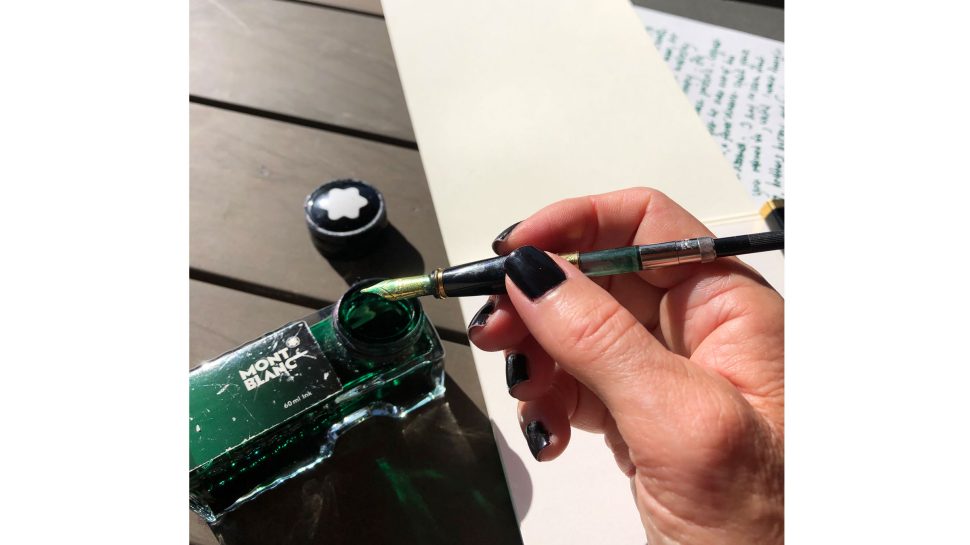
Do you have a special letter writing kit?
I have a whole host of wonderful pens - a couple of Visconti and one called a Van Gogh with a beautiful Sunflowers design. My favourite is the Waterman’s square barrel design, which I have in pale blue, raspberry, and black and gold.
I buy a new pen for each new novel and I write letters with them afterwards. I buy or mix a specific ink colour for each book so I have a whole host of inks I use for letters, depending on my mood.
How do you think letter writing can help people during this time of self-isolation?
I’ve noticed that whenever people are impatient or rushed at the supermarket, they fluster other people and make everyone less careful than they should be. I think we must slow down, give people space, and be more polite and thoughtful. We should allow ourselves time to notice the world and process what’s going on.
Letter writing requires patience. You have to focus on the little ritual of filling a pen with ink and cleaning the nib. When you write, it requires you to think about what you’re going to say before you write it because you can’t hit the Delete button. You can write over a few days and think in between sections of your letter, or add an addendum. All these things are what our outside world of instant gratification doesn’t allow.
If we think of this time as being a sort of pause button, we can take the time to write letters. It’s a pleasure to communicate in that way and I recommend people engage deeply. Think about pens, nibs and inks. Be picky. Find what you like best. Explore inks and use the refillable cartridges. This means using less plastic and changing ink whenever you like.
Who do you think would appreciate a hand written letter during this time?
Literally everyone you love or like. What’s there not to love about going to chuck out the daily dose of junk mail and finding a real letter? It’s truly delicious. You can save it to savour later. You can walk on the beach, sit with a coffee or lie on the grass in the garden and read this delicious little epistle. So write to someone you like or whom you’ve not caught up with for a long time instead of sending the ever more emails, texts and memes.
If you had to write a letter to mark and remember this time, what would you write about?
I would probably write about the walks I have done during the lockdown around Brisbane. I’ve never walked so much in my immediate surrounds, and walking often and in different loops has allowed me to see pockets and connections I would never otherwise have seen. For a writer accustomed to working in cafes, surrounded by life, those walks were the only way I could sample and sense the world as I have always done when I write.
I’ve loved the way nature has threaded through my thoughts on those walks, both the philosophical ones and the pragmatic ones, but also thoughts connected to fiction writing. My daughter is a songwriter and she talks about how the music she listened to on her walks around Canberra will forever be a reminder of this time. I miss her all the more knowing I can’t go to her.
Sometimes we walk together, sending the odd picture of where we are or something interesting we’ve seen. We talk as we walk although as a rule I hate phone calls. But she is the exception to every rule. We write letters to one another too.
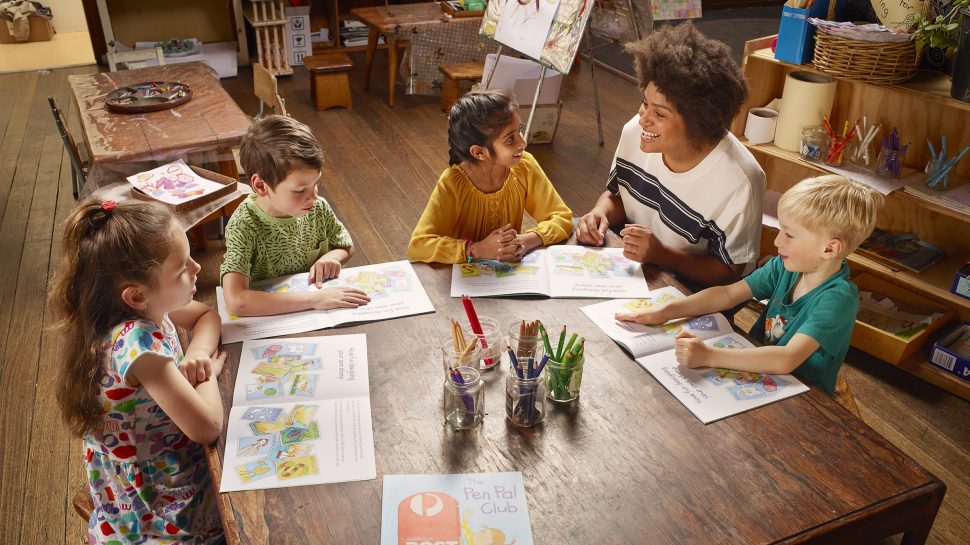
Get a Pen Pal Club Letter Writing Kit so your kids can stay connected to loved ones near and far.
